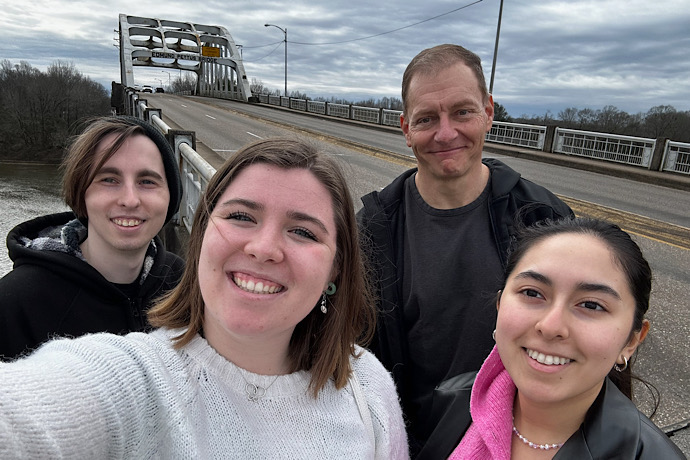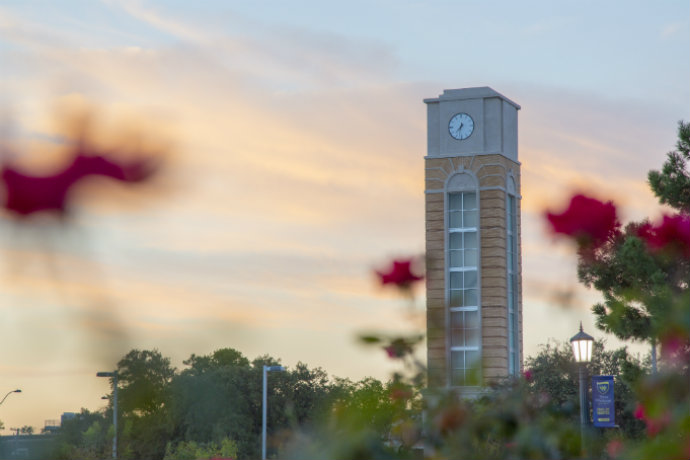Sumner Scholars tour voting and civil rights sites in Alabama

As a requirement of the Sumners scholarship, students select service projects for the academic year. For the 2022-23 year, the Sumners Scholars — Manuela Lee, Bailey O’Donnell and Ben Reckart — selected activities around the history and importance of voting in the United States. To that end, this year’s scholars became Tarrant County Voter Registrars and sponsored several voter registration drives on campus and in the Polytechnic Community. Additionally, in Nov. 2022, they sponsored an election night watch party for the Texas Wesleyan community.
The penultimate experience was Jan. 19-21 in Montgomery, Selma and Birmingham, Alabama to visit sites associated with civil and voting rights in the 1950s and 1960s. The journey began in Montgomery with a morning at the Legacy Museum: From Enslavement to Mass Incarceration. Built on the site where enslaved Black people were forced to labor in bondage, this museum uses state-of-the-art technology to provide an immersive experience chronicling the history of systemic racism in the United States. After a stop at the Rosa Parks Library and Museum, the scholars then visited the Freedom Rides Museum, located in the building that originally housed the Greyhound bus terminal in Montgomery where Freedom Riders who had been trained in Dr. Martin Luther King, Jr.’s methods of non-violent protest met a violent mob in May 1961.
The group traveled next to Selma, site of the Edmund Pettus Bridge and the events of March 1965, including Bloody Sunday and the voting rights march from Selma to Montgomery, both of which inspired Congress to pass the Voting Rights Act of 1965 late that year. At the National Voting Rights Museum and Institute, near the site of the violence of Bloody Sunday, scholars were inspired by a guide who had witnessed and even participated in the events he was retelling. The guide was trained in King’s methods of passive protest, not only meeting King in 1965, but also participating in the march, and was present when the marchers reached Montgomery and King delivered his “Our God is Marching On” speech on the steps of the Alabama capitol.
From Selma, the group traveled to Birmingham. Located across the street from both the Kelly Ingram Park and the Sixteenth Street Baptist Church, the Birmingham Civil Rights National Monument was the final stop of the trip. The park was the starting point for what became known as the Children’s Crusade. On May 2, 1963, hundreds of African American teenagers who had been trained in King’s non-violent method gathered to march from the church to city hall. They were met by the infamous “Bull” Connor who stationed police and canine units around the park. When the children attempted to leave, they were met with high pressure fire hose spray and dogs. The nearby church was the site where, on Sept. 15, 1963, members of the Ku Klux Klan planted a bomb that killed four young girls.
“This is the type of immersive experience into civil rights I want all Texas Wesleyan students to experience,” said Dr. Chris Ohan, who led the trip. “There is nothing like learning about the past on the sites where such consequential events took place.”
The Sumners Scholars who participated in the trip will be making a presentation on voting rights in the United States as part of University College Day on April 19.
For more information about the Sumners Scholarship, visit txwes.edu/sumners/. To find out about registering to vote in Texas, visit VoteTexas.gov.








